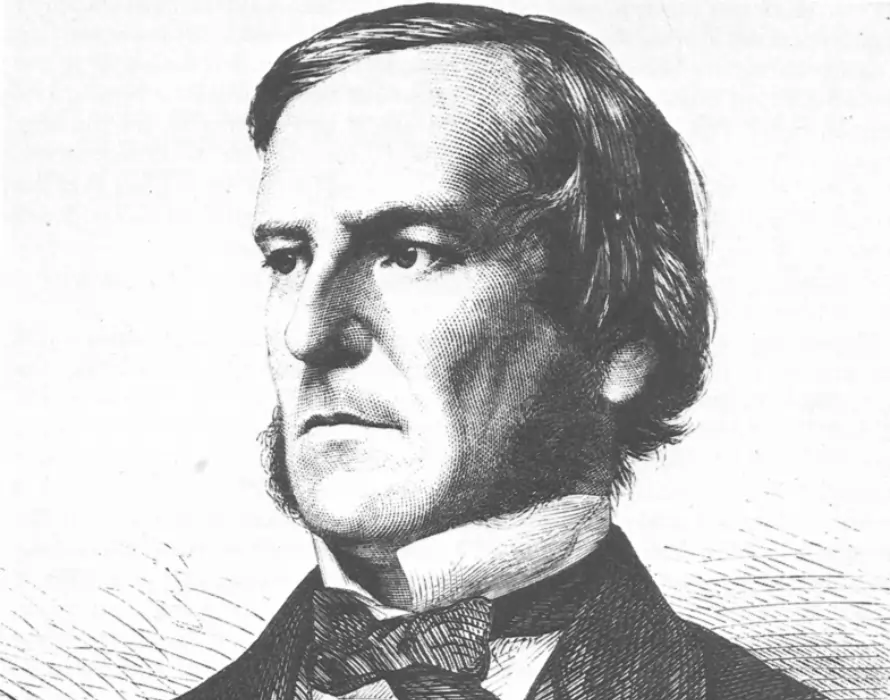George Boole (1815–1864) was an English mathematician, logician, and philosopher, best known for developing Boolean algebra, a branch of mathematics that is fundamental to the operation of modern computers and digital systems. Born in Lincoln, England, Boole was largely self-taught, and despite having no formal higher education, he made groundbreaking contributions to mathematical logic and probability theory. His work laid the foundation for many modern technologies and ideas that shape our daily lives.
Early Life and Education
George Boole was born into a modest family, with his father being a tradesman who had a passion for mathematics. Encouraged by his father, Boole developed an interest in learning at a young age. Despite financial hardships, he pursued his passion for mathematics, studying works of prominent mathematicians like Isaac Newton and Joseph-Louis Lagrange on his own. By age 19, Boole was running his own school and was already recognized for his deep mathematical insight.
Boole’s Key Contribution: Boolean Algebra
Boole’s most famous contribution to mathematics is Boolean algebra, which he introduced in his seminal 1854 work, An Investigation of the Laws of Thought. Boolean algebra is a form of algebra that operates with binary values—true and false, or 1 and 0. This system is based on the idea that logical statements can be expressed as equations, which can be combined and manipulated like numbers. For instance, in Boolean logic, the AND, OR, and NOT operations are fundamental, allowing the combination and inversion of truth values.
Boolean Algebra and Modern Computing
Boole’s algebraic framework laid the groundwork for modern digital systems. The binary logic used in computer processors, search engines, and database queries is directly derived from Boolean algebra. Every time a search engine filters results, or a computer makes a decision, it’s applying principles from Boole’s system.
In digital circuit design, Boolean logic is used to build logic gates, which are the building blocks of electronic circuits. These gates combine to form complex systems such as microprocessors, which run every computing device we use today.
Impact on Digital Electronics
George Boole’s work is critical to the development of digital electronics, which function by processing binary signals (1s and 0s). The logical operations he defined are used in creating circuits that perform everything from basic arithmetic to controlling the complex interactions of software. Modern-day technologies like smartphones, laptops, and the internet all owe a debt to Boole’s theoretical work on logic.
Boolean Logic in Programming Languages
In modern programming languages, Boolean data types are a fundamental part of coding. Programmers use Boolean values to set up conditions, control loops, and make logical decisions in code execution. For instance, when you write an if-else statement in languages like Python or JavaScript, you’re using Boole’s system to evaluate whether a condition is true or false, guiding the program’s flow.
Influence on Search Engines and Databases
Boole’s impact extends beyond hardware to software, particularly in search engines and database queries. When you perform a search on Google, the system uses Boolean operators to refine results. For example, when you search for “apple AND orange,” you’re asking the search engine to find results containing both terms. These logical operations optimize search functionality and allow precise control over how data is filtered.
Boolean Algebra and Artificial Intelligence (AI)
In the field of artificial intelligence, Boolean logic forms the basis of decision-making processes in AI algorithms. Logical gates, decision trees, and certain types of machine learning models rely on Boolean logic to evaluate conditions and make predictions. While more advanced forms of logic are used in AI today, Boolean algebra remains a core part of the foundation.
Boole’s Work in Probability Theory
Besides logic, Boole made significant contributions to probability theory. His work, although overshadowed by his achievements in logic, explored the relationship between probability and logic, influencing statistical reasoning and decision-making processes. Today, these principles are important in fields ranging from economics to machine learning, where probabilistic models predict outcomes.
Educational Influence
Boole’s work not only transformed mathematics but also reshaped education. He became the first professor of mathematics at Queen’s College, Cork (now University College Cork) in Ireland. His teaching methods and emphasis on the application of mathematics influenced generations of students and educators, encouraging a practical approach to mathematical theories.
Philosophical Impact
Boole’s work had philosophical implications as well. His idea that logic could be expressed algebraically influenced formal logic and led to the development of symbolic logic, which became a crucial part of modern philosophy and the study of language and cognition. The intersection of logic, mathematics, and philosophy opened new avenues for understanding human thought processes.
Conclusion: The Lasting Influence of George Boole
George Boole’s work forms the backbone of our modern digital society. His logical system is the framework upon which the entire world of computing is built. From the phones in our pockets to the vast databases that store our information, Boole’s innovations are at the heart of it all. Though he lived over 150 years ago, his impact is felt in almost every aspect of contemporary life, proving that his genius truly stood the test of time.


